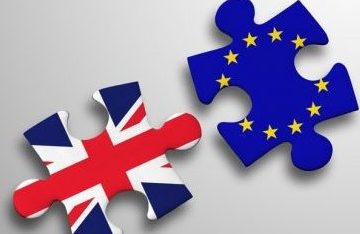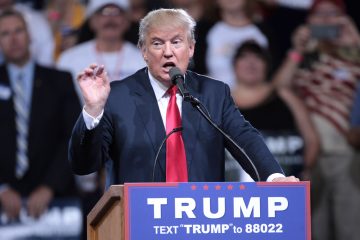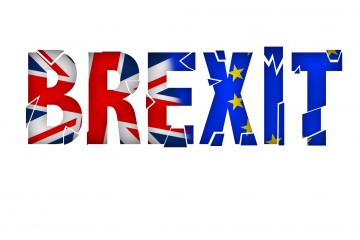
Brexit: after the posturing, the EEA?
When Britain will put forward its Brexit proposing in the spring of 2017, it should consider membership in a reformed European Economic Area, argues Michael Starks. Economic stability within a reformed EEA, which recognised the legitimate concerns of non-EU countries over open-ended migration from the EU, could provide either an interim or a permanent status for the UK in 2019. In 2017 the UK will put its opening Brexit proposal to the other 27 members of the European Union. On present evidence, the British government will ask for an agreement tailor-made for Britain, not something off-the-shelf. Theresa May, the prime minister, will look to forge a deal combining control on immigration numbers from EU countries whilst also maximising, sector by …

“Repeal of the Corn Laws: Lessons for 2016?”
Iain and I both spent a great deal of time researching on and writing about Britain’s Repeal of the Corn Laws in 1846 (McLean 2001; Schonhardt-Bailey 2006). The first question that comes to mind when one reflects on this fact is, why? More specifically, why would any modern political scientist find this specific episode in British history to be worthy of extensive academic study? As I write this, let me note that one of the lead articles in this week’s Economist draws upon the lessons of Repeal to explore the current challenges to free trade in America’s 2016 presidential campaign, namely that freer trade creates both winners and losers.[1] Of course, The Economist prides itself as originating in 1843, as …

Words that matter: What text analysis can tell us about the third presidential debate
The final Presidential debate of 2016 was as heated as the previous two—well demonstrated by the following name-calling exchange: CLINTON: …[Putin would] rather have a puppet as president of the United States. TRUMP: No puppet. No puppet. CLINTON: And it’s pretty clear… TRUMP: You’re the puppet! CLINTON: It’s pretty clear you won’t admit … TRUMP: No, you’re the puppet. It is easy to form our opinions of the debate and on the differences between the Presidential candidates on excerpts like this and memorable one-liners. But are small extracts representative of the debate as a whole? Moreover, how can we objectively analyse what was said, who got to say the most, and how the candidates differed in their responses? One approach is …

The Impact of Brexit on Europe-China Relations
The decision of the United Kingdom (UK) to leave the European Union (EU) in the referendum of June 23rd 2016 has reverberations well beyond Europe as a political and economic shock of substantial proportions. The future relationship of China, both with the remaining member states of the EU and with the UK, is one example of how a domestic political decision is having global ramifications as change ripples through the international system. Overarching any analysis about the impact of Brexit must be a sense of caution about what still remains unknown over the shape of future policy outcomes. Two cross-cutting factors are particularly important: the first is a legal and political one – what will the resulting settlement between the …

How voter turnout could put Trump in the White House
I recently spent a month travelling in the US and the word on the street is that Donald Trump could be the next president. Before the EU referendum earlier this year, I wrote about public opinion in the UK. At the time, most political pundits were predicting a remain result but there was a noticeable public sentiment to leave. Something similar is happening in the lead up to the US presidential election. While many political commentators still find it difficult to accept that Trump is a contender, many of the people whom I met on my road trip expect him to win. Of course, given voting is not compulsory in the US, voter turnout will have a big influence on the result. …

The 1975 Referendum on Europe
The United Kingdom joined the European Economic Community (as it then was) on 1 January 1973 after negotiations by the Conservative government led by Edward Heath. In the run up to the subsequent 1974 General Election the Labour Party pledged, in its manifesto, the United Kingdom’s first nationwide referendum on whether to stay part of the Economic Community on renegotiated terms or to completely part company. With a Labour victory, the new Prime Minister, Harold Wilson, followed through on his promise and a referendum was held on 5 Jun 1975. The outcome was an overwhelming victory (67%) for the ‘In’ campaign. The 1975 vote in favour of Europe did not, however, end the debate on the United Kingdom’s membership of what …

The case for uk parliamentary oversight of negotiation of the brexit agreements
On 6 September 2016 Professor Derrick Wyatt QC presented evidence to the House of Lords EU Select Committee on Parliamentary Scrutiny of the Brexit negotiations. In this article, Professor Wyatt summarises his contribution. A video of the oral evidence session is included below the article. When the uk triggers article 50, formal negotiations on a withdrawal agreement and a future trade agreement will begin When I last wrote for this blog about Brexit and the Article 50 process, shortly after giving evidence to the House of Lords EU Select Committee, I was writing about something that might happen. Now, more than two months after the referendum decision to leave the EU, I am writing about something that will happen. Once Article 50 …

Four Lessons from Brexit and its Fallout
There is no shortage of lessons to be learned from Brexit and its fallout – for politicians, businesses and the public alike. For strategists, analysts and advisors, these past few weeks have provided a host of examples of both good and bad practice. Surveying recent events, four take-aways stand out: 1) Forecast, don’t predict No one predicted this. Nor did the polls or the betting markets. Even the leaders of the Leave campaign did not predict Brexit. More than this, though, no one predicted that within weeks of a vote all of the Leave campaign’s victorious leaders would have resigned from the field and a new Prime Minister (who supported Remain, however quietly) would be installed in Downing Street. Polling …









